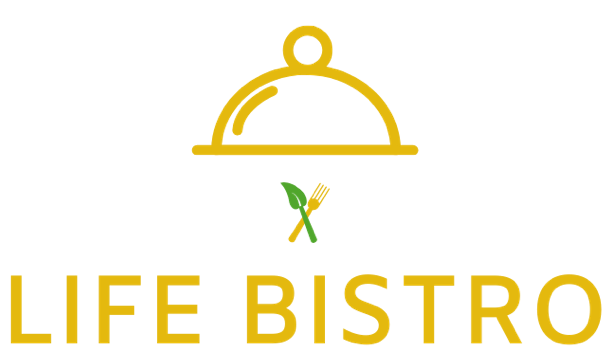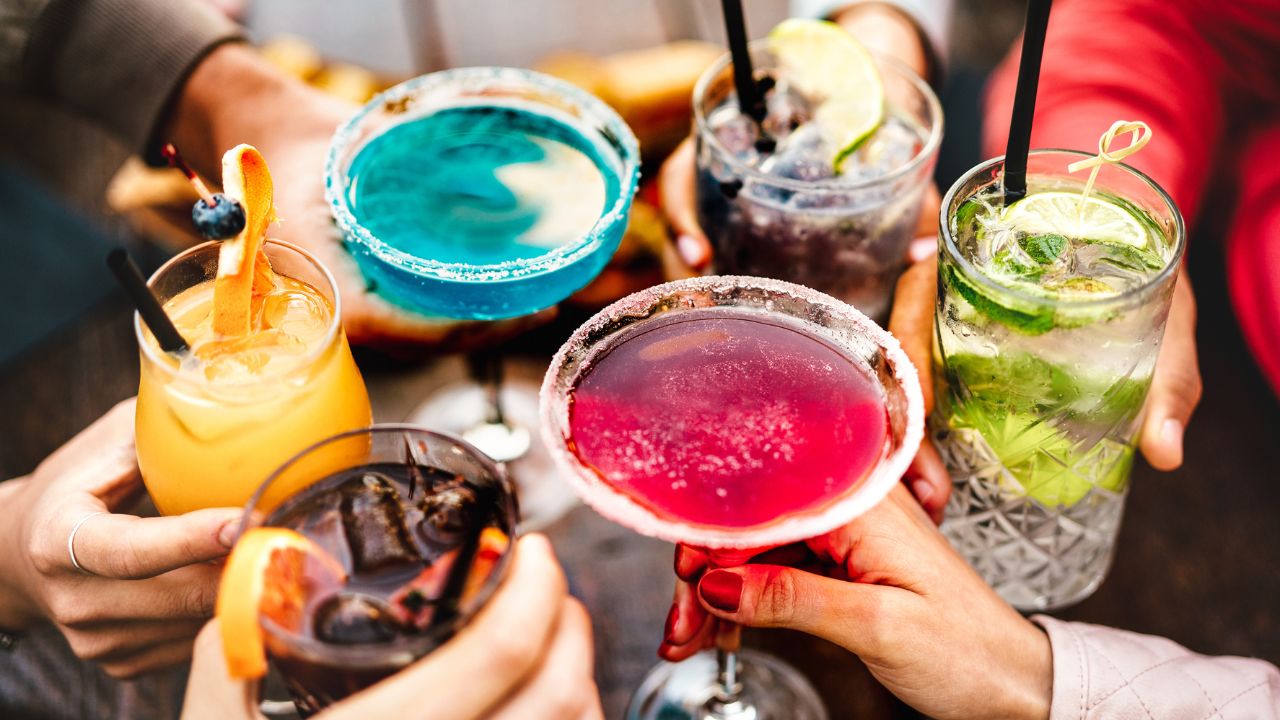The world of mixed drinks is filled with captivating history and, perhaps most intriguingly, the enigmatic origin of the term “cocktail.” These carefully crafted beverages have persisted through centuries, transcending cultural boundaries and leaving a lasting impact on societies around the globe. There’s a mystery behind the word “cocktail” with various theories, historical significance, and cultural influence, but why are cocktails called cocktails?
The phrase ‘cocktail’ originated from the French word “coquetier,” which describes a mixed brandy drink served in an egg cup. As the beverage became more popular, the pronunciation was Westernized and eventually came to be ‘cocktail.’ This addresses the question of why cocktails are called cocktails.
Delve into the fascinating stories and theories behind this beloved mixed drink, and uncover the rich history that has shaped the cocktail culture we know and love today.
Key Takeaways
- Cocktails have a mysterious and multifaceted history, with various theories behind the term’s origin.
- Cocktails embody artistry in mixology, utilizing spirits, bitters, sugar, and water to create stimulating drinks.
- The cultural significance of cocktails has had an enduring influence on society since its inception in the mid-1700s.
Introduction – Why Are Cocktails Called Cocktails
Mixologists and historians have been fascinated by the term “cocktail” for centuries. But where did this enigmatic term originate? Some believe it stems from the mispronunciation of the French word “coquetier,” which translates to “eggcup,” while others attribute it to the practice of docking the tails of non-pedigree racehorses, termed “cock-tailed”.
However, regardless of its exact origins, the term has evolved from its initial use in the mid-1700s to denote a variety of mixed drinks. Ultimately, it came to represent the diverse world of alcoholic beverages we know today.
Additionally, journeying through the array of theories and historical accounts related to the term “cocktail,” it becomes increasingly evident that the cultural significance of these mixed drinks extends far beyond their base spirit and taste.
Moreover, from the early days of colonial America to the bustling cocktail bars of the modern era, these beverages have played a unique role in shaping social customs, popular culture, and even politics.
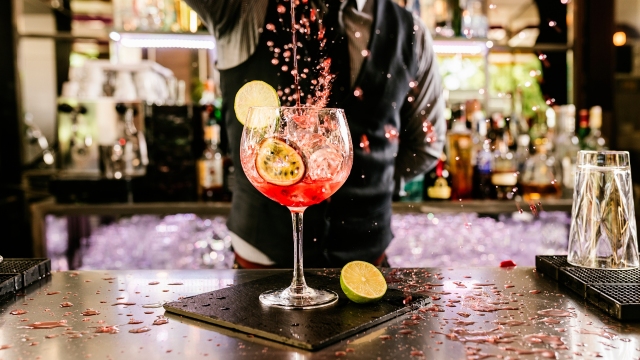
Theories Behind the Term ‘Cocktail’
Undoubtedly, the word “cocktail” has sparked curiosity, leading to various theories and explanations about its origins. From the practical to the fantastical, the etymology of this term has been the subject of much debate.
Consequently, each theory offers a unique perspective on the evolution of mixed drinks and cocktail culture. By exploring these hypotheses, it becomes clear that the origin of the word “cocktail” is as diverse and multifaceted as the drinks it represents.
Furthermore, regardless of the lively debates about the etymology of “cocktail,” one thing remains certain: the term has come to embody the art of mixing spirits, bitters, sugar, and water to create a harmonious and stimulating liquor. This tradition has been passed down through generations and continues to thrive today.
From the Old Fashioned’s simple elegance to the Long Island Iced Tea’s complex layers, the world of cocktails has evolved and expanded. This evolution has been influenced by the cultures, tastes, and techniques of mixologists throughout history.
Docked Horses Theory
One intriguing theory related to the term “cocktail” draws its inspiration from the world of equestrianism. Specifically, the Docked Horses Theory posits that the term “cocktail” was used to describe horses with docked tails, a practice common among mixed-breed horses in the 18th century.
Importantly, the docked tail gave the horse a more spirited appearance, much like the energizing effects of the mixed drinks that would later inherit the name. In this context, a “horse stick” could be seen as a playful reference to the docked tail itself.
Additionally, considering that the term might have originated from the equestrian world is intriguing, a far cry from the clinking glasses and dimly lit bars we now associate with these mixed drinks. This theory offers an intriguing glimpse into the historical context of the term and its evolution over time, highlighting the complex tapestry of influences that have shaped the world of cocktails.
Egg Cups Theory
Another intriguing theory about the origin of the term “cocktail” is the Egg Cups Theory. This hypothesis proposes that the term can be traced back to the late 18th-century apothecary Antoine Amédée Peychaud in New Orleans, who served his brandy mixed with bitters in French egg cups called “coquetiers”. According to this theory, the Americans, in their attempts to pronounce “coquetier,” inadvertently coined the term “cocktail.”
However delightful the explanation of the term’s origin is, it’s important to note some inconsistencies in the timeline, as the term appears in print before Peychaud’s time. Therefore, to further explore its origins, one might consult an online etymology dictionary for additional insights.
Nevertheless, this theory serves as a testament to the rich tapestry of influences and cultural exchanges that have shaped the world of cocktails and the language that surrounds them. This makes sense, considering the diverse origins of these drinks.
Mixed Dregs Theory
The Mixed Dregs Theory suggests that the term “cocktail” was derived from the practice of tavern owners mixing the dregs, or “tailings,” of nearly empty barrels to create cheaper drinks to sell. Notably, the mixture of various spirits and flavors in these “cock tailings” may have inspired the diverse array of mixed drinks that now bear the name “cocktail.”
Additionally, while it may lack the glamour of other origin stories, this hypothesis provides valuable insight into the resourcefulness and creativity of early tavern owners. The blending of different spirits and flavors to create a mixed drink that is new and enticing is at the very heart of cocktail culture. This aspect is a testament to the enduring appeal of these mixed drinks.
Spices Theory
The Spices Theory investigates the term “cocktail’s” culinary origins. According to this hypothesis, the term can be traced back to adding spices, such as ginger and pepper, to alcoholic drinks to invigorate the beverage and enhance its flavor. This practice was inspired by the use of spices to increase the energy and vitality of racehorses, whose tails would be raised and alert, or “cocked,” as a result.
Moreover, from the initial use of spices to the wide variety of flavors and ingredients in modern cocktails, the art of crafting these beverages has continued to evolve and inspire mixologists throughout history.
Cola de Gallo Theory
The Cola de Gallo Theory offers an additional interesting viewpoint on the term “cocktail’s” origin. This hypothesis suggests that the term can be traced back to 19th-century English sailors who observed Mexican bartenders stirring drinks with a plant called “cola de gallo,” which translates to “cock’s tail”. According to this theory, the sailors adopted the term and brought it back with them, eventually popularizing it in the English-speaking world.
Additionally, even though it might not conclusively explain the term’s origin, it serves as a reminder of the rich cultural exchanges that have shaped the world of mixed drinks. This is due to the influence of Mexican cocktail culture and the unique practice of using a “cock tail” to stir drinks, offering a fascinating glimpse into the diverse history of cocktails.
Moreover, this history can be further explored through sources like the Balance and Columbian Repository, which provide valuable insights into the evolution of mixed drinks.
Cock Ale Theory
The Cock Ale Theory proposes another interesting conjecture about the term “cocktail’s” origin. It posits that the term may have been derived from the term “cock ale,” a historical alcoholic beverage composed of ale mixed with the jelly or minced meat of a boiled cock, as well as other ingredients such as fruits and spices.
Additionally, even though it might appear as an improbable origin for the term “cocktail,” it serves as a testament to the creativity and resourcefulness of early mixologists. This is due to the blending of various ingredients and flavors in “cock ale,” offering a unique parallel to the diverse array of mixed drinks that now bear the name “cocktail.” This illustration highlights the rich history and experimentation that have shaped the world of cocktails.
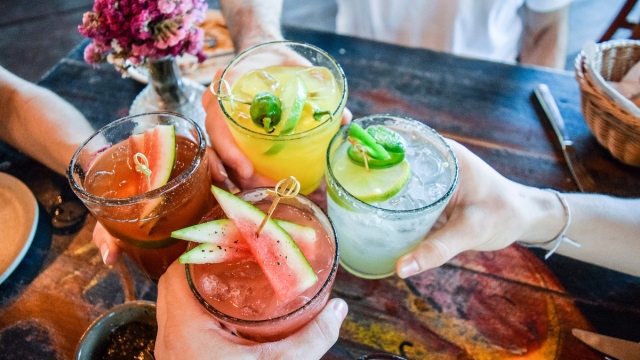
The First Recorded Uses of ‘Cocktail’
Given the multitude of theories about the term “cocktail’s” origin, it’s essential to examine the first recorded uses of the word in both non-alcoholic and alcoholic contexts. These early instances offer valuable insights into the evolution of the term and its various definitions, providing a unique perspective on the rich history of cocktails and their cultural significance.
Non-Alcoholic References
In the pursuit to demystify the term “cocktail,” it’s important to examine early non-alcoholic uses of the word. Although the term is now synonymous with mixed alcoholic drinks, its origins may lie in a more innocent context. This provides an intriguing angle on the evolution of the term and its various definitions.
Additionally, one theory suggests that the term originated from the French word “coquetel,” which translates to “eggcup”. In this context, the term was used to describe a glass used to serve mixed drinks in the 18th century. This was a far cry from the clinking glasses and dimly lit bars we now associate with cocktails.
As the term evolved and began to encompass alcoholic mixed drinks, its cultural significance grew, shaping social customs and popular culture across the globe.
Alcoholic Beverage References
The first known alcoholic references to “cocktail” can be traced back to the early 1800s, when the term was used to describe a stimulating liquor composed of spirits, sugar, water, bitters, and lemon juice. Consequently, these early definitions offer a fascinating glimpse into the origins of cocktails and their evolution over time, as the term slowly transformed from its initial use to describe docked horses to its current meaning as a mixed alcoholic drink.
Moreover, exploring early alcoholic references to “cocktail,” it becomes increasingly clear that the word has played a significant role in shaping the world of mixed drinks and cocktail culture.
From the Old Fashioned’s simple elegance to the complex layers of a Long Island Ice Tea, the world of cocktails has evolved and expanded. It has been influenced by the cultures, tastes, and techniques of mixologists throughout history.
Evolution of the Definition
The definition of “cocktail” has evolved, shaped by cultural influences, historical events, and the ever-changing landscape of mixed drinks. As we examine the term’s changing definition and its various interpretations, it becomes evident that the word “cocktail” is as diverse and multifaceted as the drinks it represents.
Moreover, from its initial use to describe docked horses to its current meaning as a mixed alcoholic drink, the term has transformed and adapted to the times. This transformation reflects the cultural significance and enduring appeal of these beloved beverages.
Furthermore, continuing to explore cocktails’ rich history and evolution through cocktail books, it becomes clear that they offer a tantalizing blend of tradition, innovation, and artistry. As such, a cocktail kit can be a great tool to recreate these classic concoctions at home.
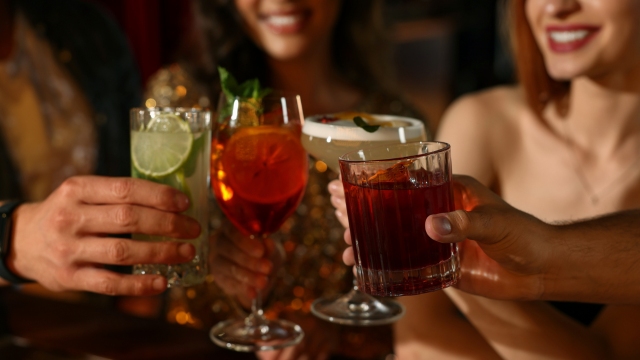
Historical Journey of Cocktails
Before the term “cocktail” began to symbolize the diverse world of mixed alcoholic drinks, there was a rich history of mixology and experimentation with various ingredients and flavors.
Journeying through the history of mixed drinks, it becomes increasingly clear that the art of crafting these beverages has continued to evolve and inspire mixologists throughout history.
Also Read: The Secret of Gluten-Free Cocktails
Cultural Influences and Folklore
Long steeped in folklore and cultural influences, cocktails with stories and myths surrounding their creation and consumption shape their symbolic meanings and significance.
From tales of Aztec princesses to legends of rooster tails, the stories and myths surrounding cocktails offer a unique perspective on their cultural significance and their role in shaping social customs, popular culture, and even politics.
Cocktail Ingredients and Composition
Early cocktail ingredients’ historical significance attests to the creativity and resourcefulness of early mixologists, who experimented with various components and flavors to create unique and flavorful beverages.
The world of mixed drinks has evolved and expanded from the initial use of spices to the wide variety of flavors and ingredients in modern cocktails. It has been influenced by bartenders’ cultures, tastes, and techniques throughout history.
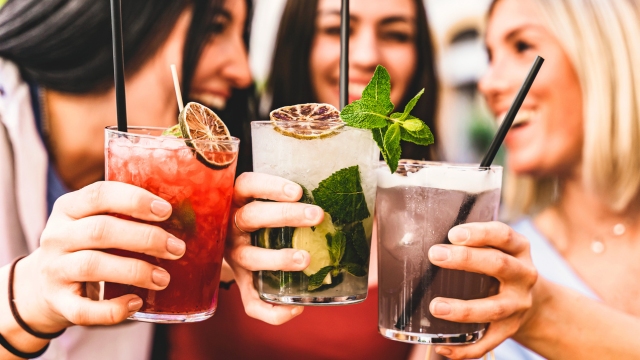
Societal Impact of Cocktails
Long-playing a unique role in social settings, cocktails have served as a catalyst for conversation, bonding, and even political discourse. Moreover, analyzing the societal impact, their symbolic meanings, and their influence on popular culture through literature and media, we uncover a rich history of social customs and traditions that the world of mixed drinks has shaped.
Furthermore, from the clinking of glasses in a dimly lit speakeasy to the sophisticated sipping of a Martini at a highbrow cocktail party, the world of cocktails has left an indelible mark on our social landscape. It has shaped the way we interact, celebrate, and even mourn.
Also Read: Is Cocktail Sauce Gluten-Free? Safe Brands For Everyday Use
Scientific Perspectives
Not only steeped in history and cultural significance, the world of cocktails also holds scientific intrigue. Moreover, exploring the chemistry of cocktail mixology, the psychology behind the name, and the sensory experiences that influence popularity, we uncover a fascinating blend of art and science that has shaped the world of mixed drinks and their enduring appeal.
Furthermore, from the molecular interactions of alcohol, sugar, and acidity to the subtle interplay of aroma, taste, and appearance, the world of cocktails is a testament to the power of science in shaping our sensory experiences and perceptions.
Final Thoughts
Whether sipping a classic Old Fashioned, toasting with a festive Margarita, or experimenting with your concoctions, cocktails offer a tantalizing blend of tradition, innovation, and artistry. Continuing to explore its rich culture tapestry, it’s evident that the drinks will continue to captivate and inspire us for generations.
Related Questions
Still have questions? Check out a couple of common ones below.
What are some early cocktail ingredients and their historical significance?
Early cocktail ingredients such as ginger and pepper have a long history of providing flavor and invigoration to drinks, making them an essential part of mixology.
What role do sensory experiences play in the popularity of cocktails?
The sensory experiences of aroma, taste, and appearance play a vital role in the popularity of cocktails, as they create unique and memorable experiences for the drinker.
What are some early cocktail ingredients and their historical significance?
Early cocktail ingredients such as ginger and pepper have a long history of providing flavor and invigoration to drinks, making them an essential part of mixology.
What role do sensory experiences play in the popularity of cocktails?
The sensory experiences of aroma, taste, and appearance play a vital role in the popularity of cocktails, as they create unique and memorable experiences for the drinker.
